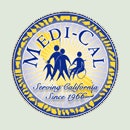SACRAMENTO, Calif. — California has enrolled 2.3 million people under an optional expansion of the state’s Medicaid program — nearly three times more than the state had anticipated, according to the state Department of Finance.
Beyond that, a record number of people who already qualified for the low-income health program signed up, pushing overall enrollment in the state’s Medicaid program known as Medi-Cal past 12 million to roughly one in three Californians.

In that time, the overall cost of the program has jumped to $115.4 billion from $91.5 billion, although much of the extra funding is supplied by the federal government.
California officials say the decision to expand has injected billions of federal dollars into the state’s economy, and they say the state is prepared to handle the additional costs through long-term budgeting and better coordination with other social programs.
“California has been at the national forefront of implementing the Affordable Care Act and will continue to be,” said Gov. Jerry Brown’s finance spokesman, H.D. Palmer.
Still, Republicans worry that Democrats who control the Capitol will look to raise taxes to make up the funding.
Lawmakers have convened a special legislative session to decide how to raise at least $1.3 billion to increase payments to doctors, dentists and hospitals that treat Medi-Cal patients, as well as to replace more than $1 billion that will be lost from a health plan tax that no longer complies with federal rules.
The governor wants lawmakers to expand the so-called managed care organization tax currently levied on health plans that accept Medi-Cal patients and include most plans regulated by the Department of Managed Health Care. Doing so, the administration says, would allow California to meet new federal requirements for a broad-based tax and draw matching funds. The proposal was put into a bill by Assemblyman Marc Levine, D-San Rafael, his office announced Thursday.
Republicans, however, are criticizing Democrats for trying to tax health plans that are already unaffordable for many Californians. They say the majority party squandered the state’s budget surplus to give salary increases to “union friends” rather than investing in health care. On Thursday, they announced a measure to dedicate any unanticipated tax revenues toward boosting Medi-Cal and developmentally disability services.
“It doesn’t seem reasonable to tax the health care of hard working California families to pay for a $1 billion budget hole that they intentionally created,” said Senate Minority Leader Bob Huff, R-San Dimas.
Meanwhile, some Democratic lawmakers want to consider a $2-a-pack tobacco tax to supplement Medi-Cal’s growing costs.
Since California embraced Medi-Cal expansion, the state has seen enrollment surpass projections on all fronts. Not only did the state opt to extend coverage to adults without children and raise allowable income levels so more people could qualify, it also simplified enrollment, making it easier for those who were previously eligible to sign up and stay on the program.
The result has been an enrollment spike among both newly eligible people and California’s existing Medi-Cal population. In January 2014, the state estimated a total of 1.4 million people would be added to Medi-Cal at a cost of $390 million for one year. In reality, 3.7 million people joined, costing the state more than $1 billion, according to state figures for the 2014-15 fiscal year.
That expense was largely driven by people who qualify under the traditional Medi-Cal program, which requires the state to split costs 50-50 with the federal government.
California’s costs will continue to grow as the federal government begins reducing its cost share for the optional expansion. The finance department estimates that the state will spend roughly $367 million in the next fiscal year as the match for the optional expansion begins ratcheting down from 100 percent to 90 percent by 2020.
Despite its costs, health advocates say the expansion will be worth it.
Mark Diel, executive director of California Coverage and Health Initiatives, which advocates for affordable health coverage, said getting people health care will mean healthier children and a healthier state.
“Medi-Cal was probably the biggest success of health care reform in California,” he said.














